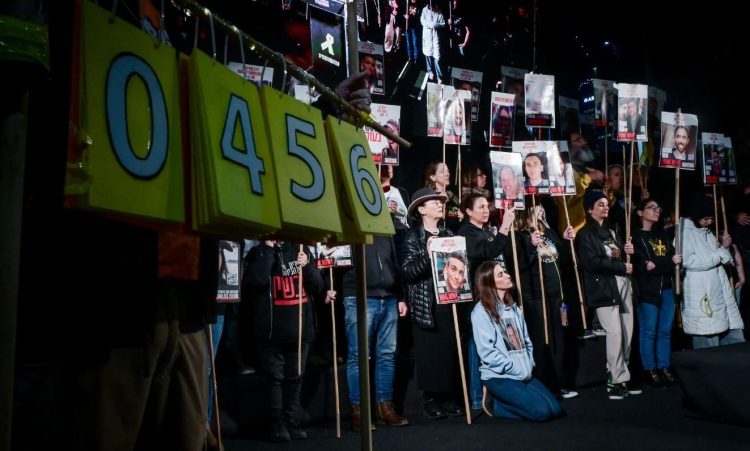Implications for the Incoming Trump Administration
The timing of this development offers an intriguing opportunity for President-elect Donald Trump, whose administration will inherit a Middle East in turmoil. Trump’s past approach to Israel and Palestine leaned heavily in favor of Israel, exemplified by the recognition of Jerusalem as Israel’s capital and the Abraham Accords.
If the hostage exchange materializes, it could provide the Trump team with a chance to recalibrate U.S. involvement in the region. Here’s how:
Building Diplomatic Credibility
By playing an active role in supporting the hostage negotiations, the Trump administration could position itself as a key mediator in future conflicts. Leveraging U.S. influence with Israel and Qatar could help seal the deal, demonstrating America’s ability to lead diplomatically in the region.
Strengthening Ties with Israel
A potential hostage exchange deal could strengthen US-Israel ties in several key ways. First, the US has played a crucial role in mediating negotiations between Israel and Hamas, working closely with Qatar and Egypt.
This collaboration highlights America’s dedication to supporting Israel’s interests and addressing its security concerns. Second, both nations share the objective of securing the release of hostages, including American citizens held by Hamas.
Achieving this goal would further solidify their aligned priorities. Additionally, the Biden administration has been advocating for increased humanitarian aid and civilian protections in Gaza. A successful deal could result in a temporary ceasefire, addressing these humanitarian concerns and advancing US diplomatic goals.
Such an agreement could also create leverage for future negotiations, potentially paving the way for broader peace efforts or regional stability measures, thereby strengthening the partnership between the two nations.
Finally, the US’s leadership in facilitating negotiations demonstrates its diplomatic influence and ability to shape outcomes in the region, reinforcing Israel’s reliance on American support. However, the situation remains complex, and while progress in hostage negotiations could improve ties, ongoing tensions over Israel’s military actions in Gaza and differing perspectives on long-term solutions to the conflict may still challenge the relationship.
Countering Iranian Influence
A successful hostage exchange deal between Israel and Hamas could potentially counter Iranian influence in several important ways. First, such a deal could weaken the ties between Hamas and Iran. By participating in negotiations mediated by countries like the U.S., Qatar, and Egypt, Hamas may show a level of independence from Iran, thereby reducing Tehran’s leverage over the group. Additionally, the deal could diplomatically isolate Iran by highlighting its limited role in resolving regional conflicts, especially compared to the active involvement of other mediators.
Financially, the agreement could increase scrutiny of Iran’s funding of militant groups like Hamas, adding pressure to Tehran’s ability to support its proxies. Furthermore, a successful negotiation might strengthen U.S.-Israel relations and boost U.S. influence in the region, serving as a counterbalance to Iranian power. Lastly, the process could expose the extent to which Iran exploits regional conflicts for propaganda purposes, undermining the credibility of Iranian-linked influence campaigns.
That said, it is important to recognize that Iran’s influence in the region is deeply entrenched. While a hostage exchange deal could challenge aspects of Iran’s regional strategy, it is unlikely to fully diminish its long-standing relationships and substantial financial and military support for groups like Hamas.
Domestic Political Leverage
A successful hostage exchange deal could provide Trump with significant domestic political leverage in multiple ways. First, it would allow him to fulfill campaign promises, as he has strongly vowed to secure the release of hostages, stating that “there will be ALL HELL TO PAY” if they are not freed by his inauguration. Delivering on this promise would reinforce his image as a leader who follows through. It would also demonstrate his ability to influence international affairs and negotiate effectively, even before officially taking office.
Trump could use such a success to contrast his leadership style with what he might frame as shortcomings of the Biden administration’s approach to the situation, gaining political points in the process. Additionally, freeing American hostages would resonate with specific voter groups, particularly those concerned with U.S. interests abroad and the safety of Americans overseas, while also capturing significant media attention.
This kind of coverage would allow Trump to showcase his foreign policy skills and shape public perception of his leadership. Furthermore, achieving a successful deal could earn him bipartisan support, as freeing hostages is an issue that resonates across the political spectrum. However, the unpredictable nature of international negotiations, particularly in the volatile Middle East, means the political benefits would depend on how the deal is executed and perceived.
The Road Ahead
While the approval of the hostage exchange list is a step forward, the road to an actual deal remains fraught with challenges. Mistrust between the parties runs deep, and the terms of the agreement could easily unravel under political or military pressure.
For now, the world watches as the details of this high-stakes negotiation unfold. Whether it marks the beginning of a broader de-escalation or simply a brief lull in hostilities remains to be seen. One thing is certain: the decisions made in the coming weeks will have lasting consequences for the Middle East and beyond.
As always, we’ll keep you updated with the latest developments right here on SOFREP.










COMMENTS